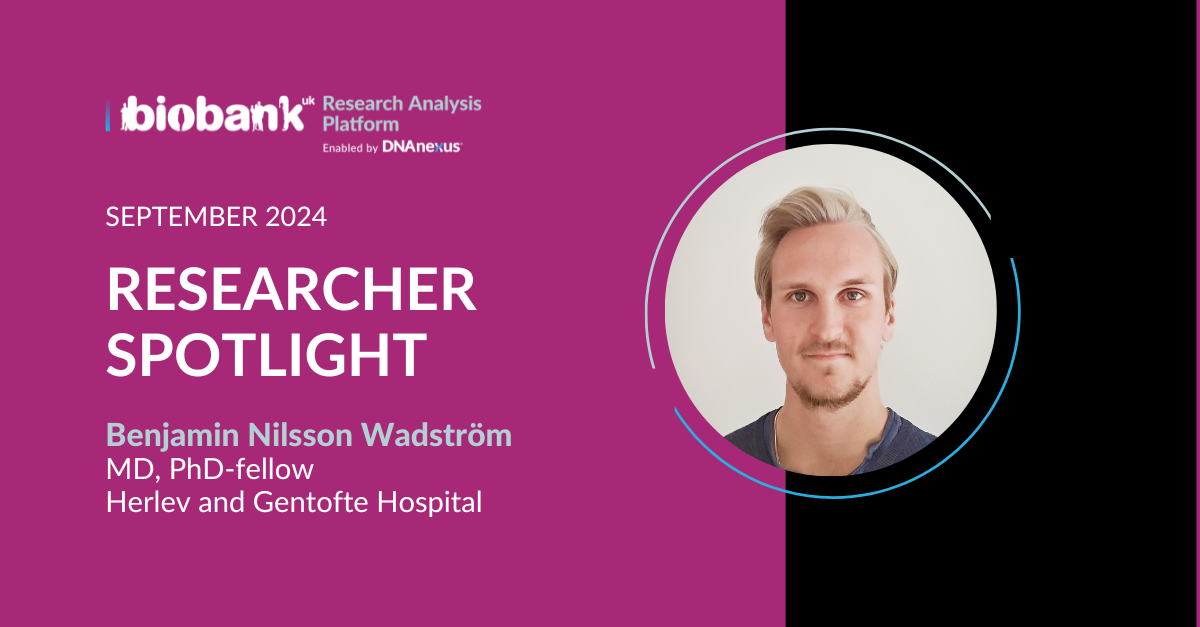The Monthly Researcher Spotlight is our section highlighting the exciting work of the UK Biobank Research Analysis Platform user community. If you would like to be featured, email ukbiobankrap@dnanexus.com.
This was simultaneously published in the September 2024 UK Biobank RAP Newsletter. You can sign up for future installments here.
This month's Spotlight features Benjamin Nilsson Wadström, a cardiovascular disease researcher studying lipoproteins to determine disease risk.
Benjamin Nilsson Wadström
MD, PhD-fellow
Herlev and Gentofte Hospital
What are the focus and discovery highlights of your research?
We study the genetic and observational associations of elevated levels of cholesterol held in low-density lipoproteins and remnant lipoproteins with risk of atherosclerotic cardiovascular diseases, with a special focus on peripheral artery disease, a common and severe form of atherosclerotic cardiovascular disease. Our findings may inform development of new lipid-lowering therapies for prevention and treatment of these diseases.
What are some of the key questions that you are looking to answer using UK Biobank data?
One question is if remnant cholesterol a causal risk factor for peripheral artery disease. Another is if different genetic pathways for lipid-lowering may confer different benefits for prevention of atherosclerotic cardiovascular diseases.
How has the UK Biobank Research Analysis Platform (UKB-RAP) helped you perform your research?
I can perform analyses requiring lots of computing power, such as genome-wide association analyses, even though I don’t have access to a local high-performance computing environment. It also enables me to extract individual-level genetic variants from exome-wide sequencing data, as well as any other new variables or new data in a straightforward manner whenever I need those for my analyses.
Any tools or tutorials that you have developed that would be useful for the UKB-RAP community?
So far, I have not had the chance to develop any tools. I can instead give a shout-out to Phil Greer for his GWAS pipeline, which has been very helpful!

.png)
.png)
.png)